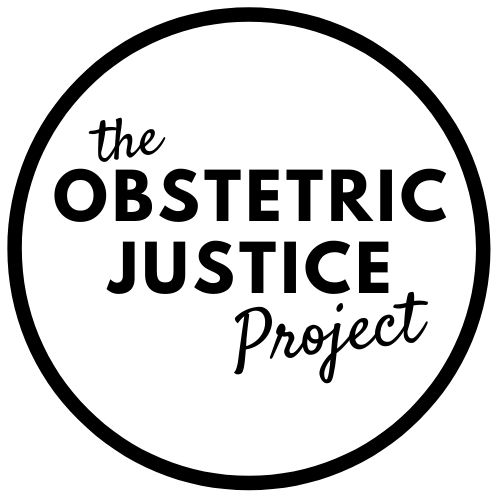May 20, 2014 - When my home birth resulted in a retained placenta, I was transferred by ambulance to the Royal Alexandra Hospital in Edmonton. No sirens were used, and I was alert and conversing with the paramedic and midwife the whole time. When I arrived at the hospital, the attending physician entered the room but never addressed me, speaking only to the other medical staff. Without warning or explanation, he began roughly pressing on my abdomen and then thrust his hand into my vagina. It was excruciating, and he stopped when I screamed. The nursing progress notes later recorded, "It was impossible to remove her placenta without anesthetic as she could not tolerate it." At that point, I was asked to give consent for a manual removal of the placenta under sedation and was taken to the operating room.
I told very few people--not even my husband--about what the physician had done. It was only three years later that I finally was able to face what had happened and to begin to do some research about consent in medical settings. What I learned was that although there are some situations in which consent is implied, exams or procedures that are a) invasive, b) intimate, c) painful, or d) risky require explicit consent. I realized that since I had not been informed about what the doctor was doing and was never given the opportunity to consent to it, what had happened to me was assault.
More than three years after my child's birth, I finally submitted a complaint to the College of Physicians and Surgeons of Alberta (CPSA). I had the support of my midwife in doing so (and am extremely grateful to her for validating my decision to take this forward).
I waited 18 long months before finally receiving the results of the review: my complaint was being dismissed. The decision was based on the fact that consent for vaginal exams is "not routinely documented"; therefore, they said, there was no proof that consent was not given. Perhaps I had forgotten, they suggested. The letter, written by a male physician, also explained to me that procedures performed during childbirth are often painful. It reasoned further that I was dealt with swiftly and effectively and that my care had therefore been adequate. The attending physician, meanwhile, claimed that he had only been doing a vaginal exam, not a manual removal of the placenta (despite the written record provided by the nursing progress notes and the resident's operative report). The CPSA did concede that there had been an "unfortunate lapse" in communication and that the doctor would be given "directed advice regarding the consent process."
It was very difficult to receive this decision. Many parts of it seemed to be contradictory or illogical: how was a "lapse in communication" about a vaginal procedure anything but a failure to obtain informed consent? Furthermore, there seemed to be a bizarre logical flaw: if the nurse and the obstetrics resident who were present had both misunderstood what the doctor was doing, how could I have been informed about what was happening? The inconsistency between their reports and the physician's account suggested that no explanation had been given--and therefore that no consent had been obtained. For these reasons, I decided to appeal the decision. This time, I was successful, and my case was sent before the Hearings Director.
I want to acknowledge here that as a cisgendered PhD-holding white woman in her 30s, I am among the most privileged of people giving birth. I know that this went a long way toward enabling me to make a complaint--and to appeal that complaint when it was dismissed.
Five months later (now five years since my child's birth), I received the final decision of the Complaint Review Committee: again, my case was being dismissed. This time, the report claimed that because I was tachycardic and had lost around 1000mL of blood when I arrived at the hospital, my case had been an emergency, and consent could therefore "be implied." While the letter did concede that my case could "serve as an important example for a change in practice," there were insufficient grounds to refer the physician to a hearing. This was the final decision, and it could not be appealed.
Documents from the College of Physicians and Surgeons of Alberta - Submitted by Keavy Martin


